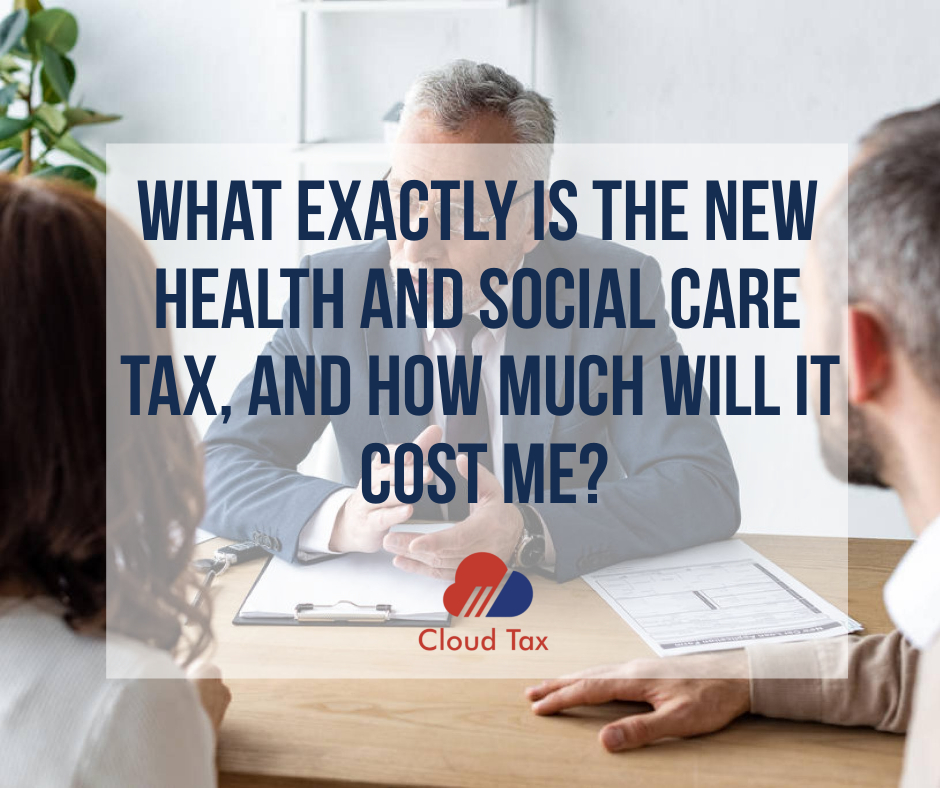In April, National Insurance payments will rise to help fund social care in England and the NHS recover from the pandemic.
However, some have argued that the move is unjust to lower-paid workers, especially as the cost of living rises.
What exactly is National Insurance?
- Employees and employers both pay this tax on their incomes; self-employed people pay it on their profits.
- In 1911, it was established to create a fund for people who had lost their jobs or needed medical treatment.
- The NHS, benefits, and the state pension are now paid for with this money.
- In addition, the government can borrow money from the National Insurance Fund to fund other projects.
What is the Health and Social Care Levy, and how does National Insurance change?
Employees, businesses, and the self-employed will all pay 1.25p more in the pound for National Insurance starting in April 2022. (NI).
- Employees are required to pay National Insurance on their wages.
- Employers must also pay additional NI contributions for their employees.
- The self-employed must pay NI on their profits.
However, starting in April 2023, National Insurance will revert to its current rate.
Instead, the additional tax will be collected in the form of a new Health and Social Care Levy.
Unlike National Insurance, this levy will be paid by state pensioners who are still working.
What are the financial implications of the TAX changes?
People earning less than £9,880 per year, or £823 per month, will not be required to pay National Insurance or the new charge when it is introduced in April.
Those earning more than £12,875 per year, on the other hand, will pay extra.
An employee earning £20,000 per year, for example, will pay an extra £89 per year. Someone with a salary of £50,000 will have to pay £464 extra.
What are some of the criticisms of the tax hike?
There are fears that the rise will disproportionately affect the lower-paid.
This is because workers who earn between £9,564 (£9,880 from April) and £50,268 pay 12% of National Insurance. Earnings exceeding this amount, on the other hand, are taxed at a rate of only 2%.
As a result, if your salary exceeds £50,000, National Insurance will take a smaller percentage of your earnings.
The Health and Social Care Levy will function similarly to the National Insurance system.
In addition, the government is breaking a pledge it made in its 2019 election campaign not to raise National Insurance.
Boris Johnson, on the other hand, blamed the spike on COVID and the strain it put on the NHS.
What is the purpose of the tax increase?
The measures are projected to raise £12 billion every year, according to the government.
This will initially be used to relieve the burden on the NHS.
After then, a portion of the money will be funneled into the social-welfare system.
This primarily assists older people and persons who require a lot of assistance with things like showering, dressing, eating and taking medication.
From October 2023, the goal is for people in England to spend no more than £86,000 in care costs (not including accommodation and food).
Anyone with less than £20,000 in assets, such as their home, money, and investments, will have their care paid for in full by the state.
Those with assets worth between £20,000 and £100,000 will have their care costs covered.
What is going on in the rest of the United Kingdom?
In Wales, no one eligible for home care is required to pay more than £100 per week.
Home care is free for everyone over the age of 75 in Northern Ireland.
Scotland provides free personal care to people of any age who are identified as needing assistance at home.
If you have less than £18,000 in funds or assets, you can access free care in a Scottish care facility.
Those with £18,000 to £28,750 in savings and assets are responsible for paying a share of their care.
People with more than that must pay for their own care, with the exception of a £193.50 weekly contribution for personal care and £87.10 weekly contribution for nursing care.
For more information Book a Free Consultation!

